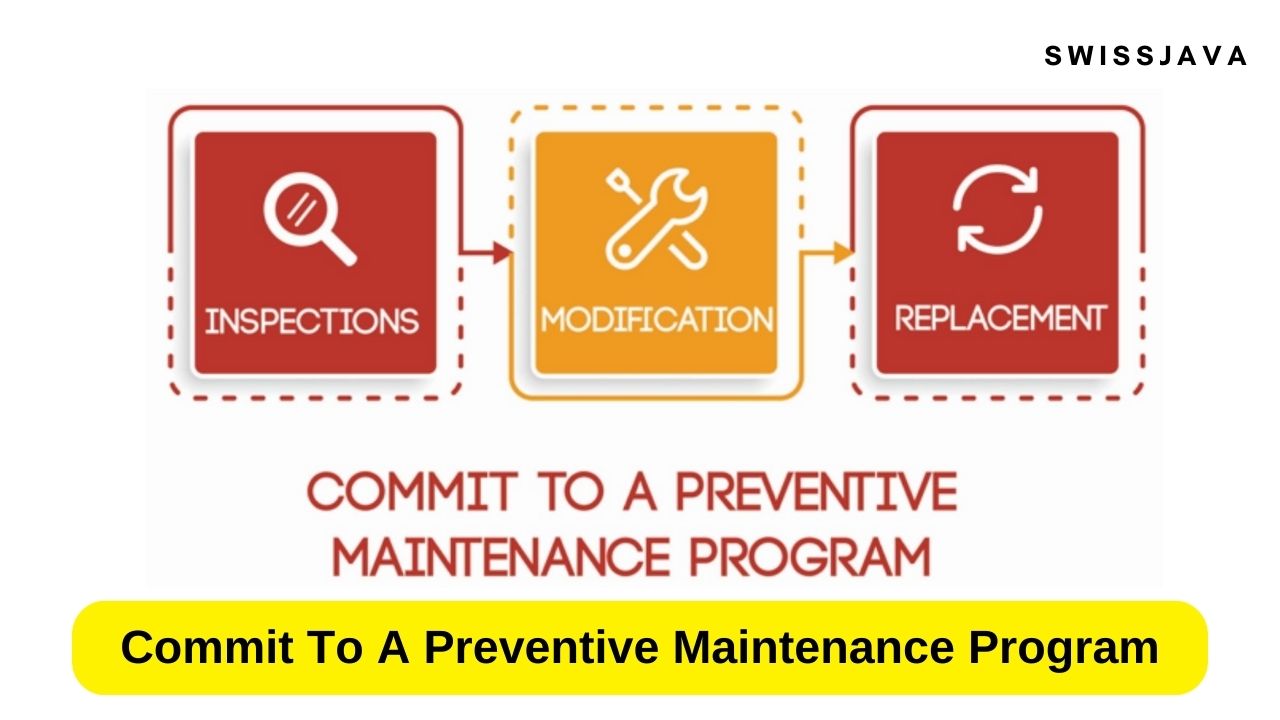Heavy Equipment Maintenance – Heavy equipment maintenance refers to the process of inspecting, servicing, repairing, and replacing components of large machinery and vehicles used in construction, mining, agriculture, and other industries.
These machines, such as bulldozers, excavators, cranes, and tractors, require regular maintenance to ensure they remain in optimal operating condition and to prevent costly breakdowns and downtime.
Maintenance tasks for heavy equipment may include oil and filter changes, lubrication of moving parts, inspection of belts, hoses, and tires, cleaning of air filters, replacement of worn or damaged components, and testing of electrical and hydraulic systems.
By performing regular maintenance, heavy equipment operators and owners can ensure their equipment is safe, reliable, and efficient, reducing the risk of accidents and extending the lifespan of the machinery.
Heavy Equipment Maintenance
Here are some simple steps you can do right now to increase the ROI and service life of your construction equipment.
Commit To A Preventive Maintenance Program

One of the most important steps to maximize heavy equipment machine life is to commit to a preventive maintenance program.
This means creating a regular maintenance schedule and following it consistently to ensure that all maintenance tasks are completed on time.
Preventive maintenance can help identify potential problems before they become major issues, reducing downtime and increasing the lifespan of the equipment.
1. Conduct Regular Inspections
In addition to following a preventive maintenance program, it’s important to conduct regular inspections of the equipment.
Inspections can help identify any issues that may have been missed during routine maintenance and can help prevent small issues from turning into major problems.
2. Keep Equipment Clean
Keeping heavy equipment clean is another important step to maximize machine life.
Dirt, dust, and debris can build up and cause damage to the equipment over time.
Regular cleaning can help prevent this and keep the equipment operating at optimal levels.
3. Check Fluid Levels and Quality
Checking fluid levels and quality regularly is crucial to the proper operation of heavy equipment.
This includes engine oil, hydraulic fluid, and coolant levels.
Keeping these fluids at the proper levels and ensuring they are clean and free of contaminants can help extend the lifespan of the equipment.
4. Use High-Quality Parts and Components
Using high-quality parts and components is also essential to maximizing heavy equipment machine life.
Low-quality parts can fail prematurely and cause damage to other components, leading to costly repairs and downtime.
5. Train Operators Properly
Proper operator training is key to ensuring heavy equipment is operated safely and efficiently.
Operators should be trained on proper operation techniques and maintenance procedures to prevent equipment damage and promote safe operation.
6. Store Equipment Properly
Storing heavy equipment properly when it’s not in use is also important.
This includes storing it in a dry, secure location and covering it to protect it from the elements.
Proper storage can help prevent rust and corrosion, as well as damage from weather conditions.
7. Keep Detailed Maintenance Records
Finally, keeping detailed maintenance records is important to track maintenance tasks, identify potential issues, and ensure that all necessary maintenance is being completed.
These records can also be used to track equipment lifespan and help inform future purchasing decisions.
Determine the Major Causes of Machinery Failure
There are various factors that can contribute to machinery failure.
Some of the major causes of machinery failure are:
1. Wear and Tear
Heavy machinery is often subjected to extreme wear and tear, especially in industries such as mining, construction, and agriculture.
The constant use of machinery can cause parts to wear down, which can eventually lead to equipment failure.
2. Lack of Maintenance
A lack of regular maintenance is another major cause of machinery failure.
Without proper maintenance, equipment can suffer from component failures, decreased performance, and other issues that can lead to failure.
3. Misuse
Machinery can also fail due to misuse, such as operating the equipment outside of its intended parameters or overloading the machine beyond its capacity.
This can cause premature wear and tear on parts and components, which can lead to equipment failure.
4. Environmental Factors
Environmental factors such as extreme temperatures, humidity, dust, and debris can also contribute to machinery failure.
For example, dust and debris can clog filters and other components, causing the machine to overheat and eventually fail.
5. Human Error
Human error is another common cause of machinery failure.
This can include improper use of equipment, inadequate training, and failure to follow maintenance procedures.
6. Manufacturing Defects
Machinery can also fail due to manufacturing defects, such as substandard materials, poor workmanship, or faulty design.
It’s important to identify and address the root causes of machinery failure to minimize downtime and repair costs.
Regular maintenance, proper use of equipment, and appropriate training of operators can all help reduce the risk of machinery failure.
Read More: Top 7 Machine Moving Companies In The World
Learn Everything You Can About Your Machines

Learning everything you can about your machines is an important step in maximizing their lifespan and minimizing downtime.
Here are some reasons why it’s important to learn as much as possible about your machines:
1. Understanding How the Machines Work
By learning about the components and operation of your machines, you can better understand how they function and what types of issues may arise.
This knowledge can help you identify potential problems early on, before they lead to more serious issues.
2. Identifying Maintenance Needs
Knowing the maintenance needs of your machines is crucial to keeping them running smoothly.
By understanding the maintenance requirements of your equipment, you can ensure that it receives the appropriate care at the right times.
3. Improving Efficiency
Knowing how to operate your machines efficiently can help you get the most out of them.
For example, by understanding the ideal operating conditions for your machines, you can optimize their performance and minimize wear and tear.
4. Reducing Downtime
By learning about your machines and their maintenance needs, you can reduce the risk of unexpected downtime.
Regular maintenance and early identification of issues can help prevent breakdowns and keep your machines running smoothly.
5. Enhancing Safety
Understanding the safety features and requirements of your machines can help ensure that they are used safely and correctly.
Proper training and knowledge of safety protocols can prevent accidents and injuries.
Conclusion
In conclusion, heavy equipment maintenance is crucial for maximizing the lifespan, efficiency, and safety of your equipment.
A comprehensive maintenance program should include regular inspections, scheduled maintenance tasks, and ongoing monitoring of equipment performance.
By committing to a preventive maintenance program, identifying the major causes of machinery failure, learning everything you can about your machines, and implementing ongoing maintenance processes, you can reduce downtime, lower repair costs, increase productivity, extend equipment life, and maintain resale value.
Investing in heavy equipment maintenance is an investment in the longevity and profitability of your business.